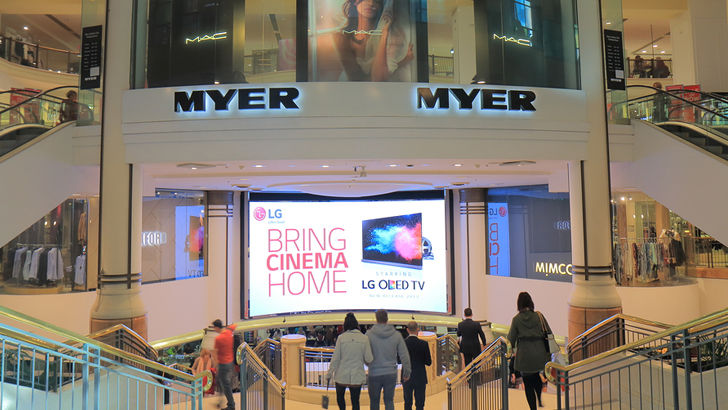When will the bleeding stop for Myer shareholders?
By Chris Batchelor
Key statistics: ASX: MYR
Closing share price 19.09.17: $0.690 52-week high: $1.390 52-week low: $- Most recent dividend: 2c Annual dividend yield: 7.19% Franking: 100%
Myer is an icon of Australian retailing. The first store was founded in 1900 by Sidney Myer and it has since grown to be the largest department store chain in Australia.
Its ownership has taken various forms over its long history, but most recently it was floated as a public company in November 2009.
From an investor's perspective the float has been an unmitigated disaster.
From an issue price of $4.10, the shares have never traded above $4.00 and have been in a steady decline since listing to today's level of about $0.70.
If you were hoping to lose 80% of your capital, your dreams have been realised.
Factoring in the dividends you are only down 57% which must be some comfort. During that time stores have declined from 65 to 59, revenue declined from $3.3 billion to $2.6 billion and net profit after tax declined from $109 million to $12 million.
Myer reported underlying profit of $68 million as opposed to $12 million in statutory profit for the year to July 2017.
The difference between underlying and statutory profit is mistakes. Poor investments from the past are written down and attempts to change things and improve future performance are called restructuring costs.

But the fact remains, the company and therefore shareholders have lost money. Myer's statutory profit has been below underlying for three years in a row now, with a total difference of $113 million. Where will the bleeding stop?
Of course the hope of management, and remaining loyal shareholders, is that they have now figured out what it takes to succeed as a retailer in the modern world and revenues and profits will begin to rebound.
One positive is that the online strategy seems to be progressing well, with online sales rising 41% and now representing 8.2% of total sales.
Myer is exploring different strategies like same day delivery, reducing discounting and aggregating clearance sales to an entire floor of designated stores. US department store J.C. Penney famously tried to eliminate discounting to arrest its slide in performance. Revenue fell by one third.
At this point some will be saying 'surely it can't go any lower?' It can!
That said, the valuation metrics are now getting very low, with a lot of the bad news already priced in. The forward PE ratio is very low at 8.6 and dividend yield is 7.1%.
Even the price to book ratio, which measures the market capitalisation of the business against the net assets of the business, is very low at 0.54. This implies that the market values the whole business at only half what the assets are worth.
Only 6% of the net assets are represented by debt but intangible assets equate to 92% of equity and inventory 35%. Clearly the market is expecting quite a few more writedowns.
This could mean it is a great opportunity for the brave and contrarian investor, but it could also be a value trap.
Being an iconic brand, investors may be tempted to think of Myer as a blue chip stock.
The reality is it is a very speculative stock. It is a small cap, with an abysmal track record, in an industry with well documented headwinds. It is possible that management will effect a successful turnaround and revenues and profits will start to grow but the risks are very high.
If speculation is not your thing and you are looking for a steady performer with a reliable income stream I would be looking elsewhere.
Get stories like this in our newsletters.


